What to expect next year according to our board
2023 Technology and Business Predictions
We interviewed our board of directors about their 2023 expectations. Here's what they said:
We asked our board of directors about their predictions for the next 12 months. They share their key learnings from the last year, what businesses and people should expect in 2023 and their advice for dealing with uncertainty, recession, cyber security and other technology and business challenges.
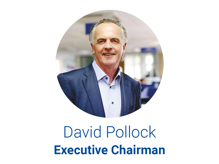 David Pollock, Executive Chairman
David Pollock, Executive Chairman
Over the last several months, I learned to expect the unexpected. In the current economic environment, it’s crucial to be decisive – choose your strategy and stick to it. Since I started Chess in the 90s, I’ve been through multiple recessions. I’ve learned that my intuition is likely correct and that I must trust my instincts. The company grew through political and economic turmoil, so I know that recessions create opportunity and to be ready for rapid growth after the downturn.
Malware and ransomware in a box have become widely available and easily accessible. Additionally, political turmoil will likely lead to more state-sponsored attacks. Speaking to our team of penetration testers, security experts, and security partners, we expect an increase in cyber-attacks and fraud in 2023.
On a more positive note, energy prices will likely start to fall, and inflation will stabilise. Consequently, interest rates will also decrease next year.
With this in mind, avoid excessive price and wage increases over the next 12 months, as it can become a vicious spiral. The recession will end, so be ready for growth in 2024.
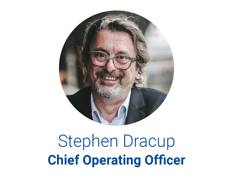 Stephen Dracup, Chief Operating Officer
Stephen Dracup, Chief Operating Officer
2022 was a year of continuity for me. Sticking to the disciplines adopted through Covid has continued to reap benefits. We doubled down on improving systems and procedures, driving out inefficiency and making data-driven decisions, leaving us at the end of the year in a much stronger position than when we started.
More face-to-face interaction with other people has reminded me of its importance. However, I am still convinced that hybrid working with a strong emphasis on home first is the right way forward for most of our teams.
It doesn’t take a genius to predict turbulent times for 2023, but for me, this will be a year with continued growth in the tech sector and the major risk to this will be retaining and attracting talent. Providing a vibrant, flexible, and varied work experience will be critical. Keeping people engaged must be near the top of your agenda in 2023. Technology will play a crucial part in this as we mix home and office work. People engagement platforms such as Viva will gain more prominence in large corporates.
People want to work in and buy from a business that plays its part in the wider community - especially where we will see the impact of the cost of living rises in the more disadvantaged parts of society. So, it will be important to make the potentially dull world of Environment, Social and Governance (ESG) seem relevant to your people and your customers.

The Role of Technology in ESG
Online, over the phone or face to face, customers and employees want to interact in line with their preferences rather than yours. Match these expectations and adapt your customer experience strategy. Continuing digital transformation projects, despite rising costs, will pay off in the medium term.
Take advice where you can find it in the next year. Over the last few months, I have attended several conferences and external events - both online and in person. I think there is a great comfort to be had in listening to other people, whether they are in your industry and confronted by similar challenges to you, or external partners who may be able to give you a view of what is happening elsewhere. Things are rarely as complicated as they seem. Getting a broader point of view can really help.
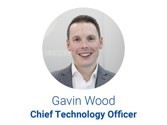 Gavin Wood, Chief Technology Officer
Gavin Wood, Chief Technology Officer
Looking back on 2022, what is my view? For me, it’s Data, Data, Data! That could be how I keep my personal data private, how I analyse all of my company’s data to get valuable insight, or how I secure my company’s data. Throughout 2022, a year in which we saw the Chief Security Officer of Uber convicted in the US for covering up a data breach, ClearViewAI were fined £7.5M for unlawful data collection, and the NHS is still under large-scale ransomware attacks, our data is more important than ever.
Going into 2023, we are going to see continued escalation in cybercrime. Data is so important for cyber criminals that there is even a shift away from ransomware to just pure data exfiltration. Steal the data, threaten the organisation with the potential of a data breach, and request a ransom. Given the current state of the UK economy, organisations will be squeezed for every penny, meaning already tight IT security budgets will be stretched even further. Combining that with the current IT security skills shortage, we will likely see further large-scale attacks and the potential for huge fines from the ICO.
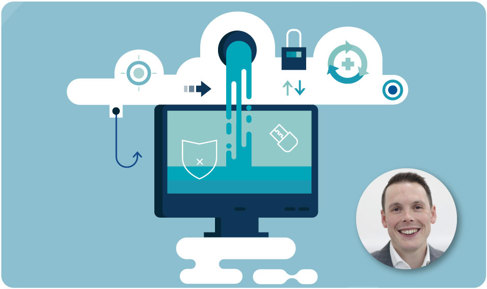
Recover from a cyber attack
Data continues to play an ever-increasing role within organisations. Connecting your people to the data that gives valuable business insight is critical. Every organisation should be on their digital transformation journey. That might be as simple as moving from legacy applications to cloud-based solutions or with deep dives into data analytics allowing for AI analysis or implementing data management lifecycles or robotic automation processes to increase efficiency. Make sure you have a digital transformation plan, start with your goals and then work backwards to the technologies you need actually need to achieve them.
My advice for businesses over the next 12 months is to set your budget to allow you to get the basics right. At the top of your list should be inventory management and knowing what assets you have to protect, efficient patching, solid endpoint protection, disaster recovery and business continuity plans that are actually tested. With limited spending, these basics should be the minimum. Once this is done you can focus your effort and skills into increasing protection through additional services or find a partner that can help get most value out of your existing estate.
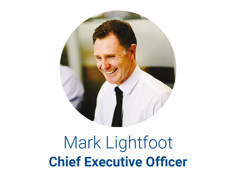 Mark Lightfoot, Chief Financial Officer
Mark Lightfoot, Chief Financial Officer
The novelty of hybrid working wore off for some people in the last months. As such, it became even more important to have great, securely accessible systems with effective regular 2-way communication, collaboration, MI and BI. Businesses started to understand that Connectivity, Security, Infrastructure, Communication and MI/BI aren’t separate objectives with different solutions. Instead, providers that offer a suite of products and one-stop solutions will win and retain business and improve customer loyalty.

The CFO Take on Tech Budgets
The start of the year will be choppy, and many people in the workplace will never have experienced pressure like it before. However, I believe most business leaders aren’t as pessimistic about the short to medium-term economic state as the press would have us believe. On that basis, I think recovery and growth will return quicker than some predict, and next year we will have overcome the worst of it.
I also believe the typical 3 days at home/2 days in the office routine will likely move to 3 days in the office/2 days at home, driven by people’s desire to interact and leader’s realisation that to give the next generation of stars the chance to shine, they need mentoring, more energy and opportunity to interact.
Look after your people. They are your most valuable asset. Come February, we will have had three years of upheaval, impacting people’s wellbeing. Invest in a sensible and balanced mix of physical, mental and financial wellbeing initiatives and your people will be with you.
 Warren Pryer, Group Sales Director
Warren Pryer, Group Sales Director
The markets were unpredictable in the last year, and I agree with David – learn to expect the unexpected and to operate in uncertainty! With this said, we saw that cloud-based services significantly improve agility. You can scale up or down based on demand and usage, controlling costs and keeping positive cash flows.
We’ve all seen how challenging it can be to recruit and retain people, especially in highly skilled positions. The number of customers looking to outsource partially or fully their IT function has grown. It will likely only increase over the following years.
However, this competitive job market means that salaries have increased. Public sector organisations will struggle to keep talent because of the pay delta with the private sector. Businesses will be tempted to bring people back to the office but be careful! This will likely lead to churn, and the hybrid approach will likely improve retention.
Considering the rising cost of people and utilities such as energy, there will be supply chain price increases across the board. Many of our suppliers are migrating their products to the cloud to optimise cost. We are helping our customers to optimise their technology investments, and more and more companies are looking for a demonstrable return.
Ensure that you have a sufficient plan to cope with the increase in cloud-based services or that you have a trusted partner to help you. Beat the last-minute rush and likely bottleneck caused by the PSTN Switch Off - review your connectivity and voice infrastructure early next year. Finally, invest in your security posture - do our free online assessment to find out what gaps you may have. Successful cyber-attacks can be catastrophic and cost you your business.
 Oliver Lofthouse, Sales Director
Oliver Lofthouse, Sales Director
We will continue to suffer from a talent crisis, with the UK having the highest number of job vacancies in 20 years. Businesses need help finding, recruiting and retaining talent, particularly those with specific skill sets. I predict wage inflation will continue for the short to medium term, but leaders will also look to outsource to find the right solution. Businesses will search for trusted partners, so managed support and professional services will become increasingly important and valuable over the next five years. The length of service will likely reduce, and every employer must clearly articulate their employee value proposition to keep good people.
Perhaps linked to a talent shortage, AI will play a more pivotal role in our working lives and how we run businesses. We all interact with artificial intelligence (AI) daily and probably don't even realise it. I don't think AI will replace human intelligence in the short term, but I firmly believe it will grow in prominence as a support tool. This will surface first in areas such as cyber security, customer relationship management and digital assistants to help people be more efficient in the workplace.
The technology that employers provide will define the employee experience. These tools are central to attracting and retaining new talent, fostering workplace culture and driving productivity. Every business needs to constantly consider the technology they are using and the newly available options. Without the focus on this area of your business, you are risking employee engagement and retention and potentially restricting your ability to attract new talent.
I also predict Openreach will delay the 2025 PSTN shutdown at least partially. The lethargy in the market and a lack of urgency will create a bottleneck. Stop-sell will continue phased across the exchanges, but a total switch-off in December 2025 will not happen, and customers will be using the PSTN network in 2026 and beyond. However, they will most likely pay handsomely for this privilege, and I also predict most business owners will have wished they had acted sooner.
With the continued rollout of 5G and soon-to-come 6G services, I predict the IoT network's scale will gather quickly from 2023, driven through broader business adoption. IoT is the network of physical objects, or 'things', fitted with sensors and connected over the internet. This allows them to gather and exchange real-time data, which you can then analyse to improve processes. The technology has been particularly useful in large corporations and industrial settings, helping manufacturers gain valuable data insight, but it can also benefit small and medium enterprises (SMEs). I think every business could benefit from utilising IoT technology, and should be a significant consideration for every company looking for that competitive edge.
To summarise, as a business leader, you should focus on retaining your people, improving your security, and enabling hybrid working in the new year. We can help you on your journey, whatever your strategy is for 2023 and advise on you the best technology for your organisation. Contact our expert team and book your FREE technology consultation today.
Speak to a Specialist
You can fill out the form and one of our product specialists will contact you shortly with more information.



About the author
uSkinned
uSkinned, the world’s number one provider of Umbraco CMS themes and starter kits.